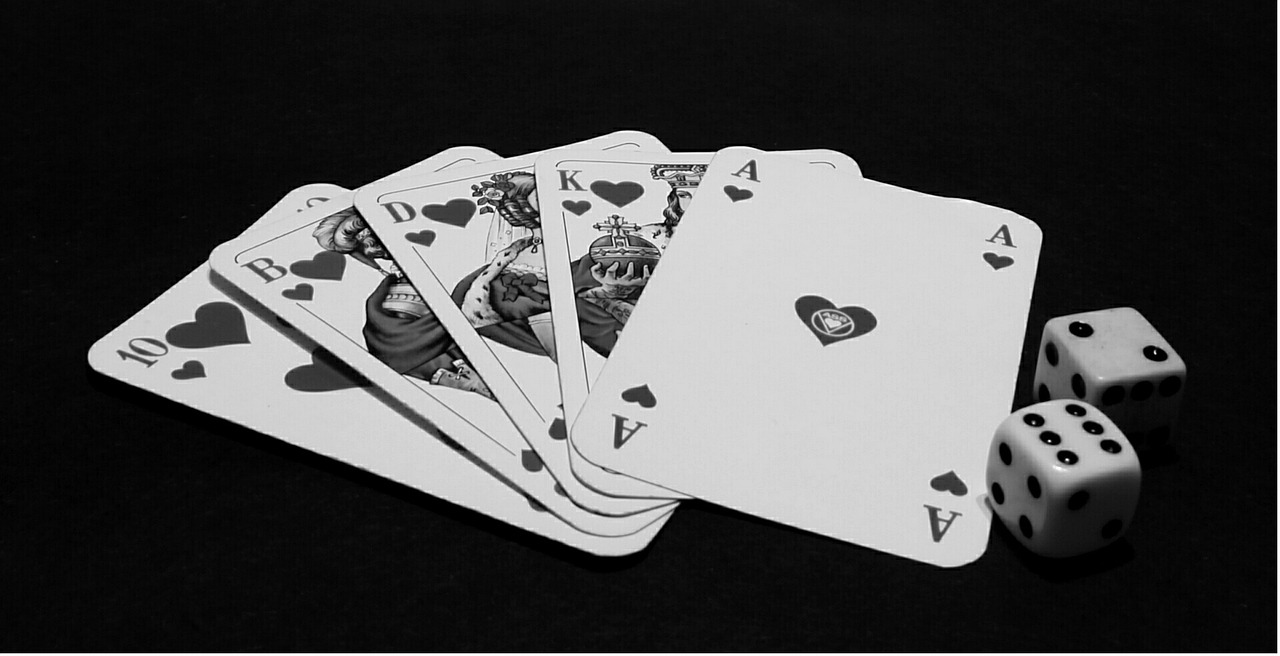The Mastermind’s Guide to Poker Tournament Strategy: Decoding Opponents with Intuitive Observation is a comprehensive book that delves into the intricacies of poker tournament strategy. Written by an experienced poker player and strategist, this guide aims to equip readers with the skills and knowledge necessary to decode their opponents through intuitive observation. By understanding the subtle cues and behaviors exhibited by other players, readers will learn how to make informed decisions and gain a competitive edge in poker tournaments. This book is an invaluable resource for both novice and experienced players looking to enhance their tournament performance.
The Importance of Observation in Poker Tournaments
In the world of poker tournaments, observation is not just about watching the cards on the table. It goes beyond that, encompassing a keen eye for body language, facial expressions, and even the smallest gestures. These subtle cues can reveal a wealth of information about an opponent’s hand, their confidence level, and their overall strategy.
One of the first things a mastermind poker player does is observe their opponents from the moment they sit down at the table. They take note of their demeanor, their posture, and their overall behavior. Are they relaxed or tense? Are they making eye contact or avoiding it? These initial observations can provide valuable insights into an opponent’s mindset and help shape the mastermind’s own strategy.
As the game progresses, the mastermind continues to observe their opponents, looking for patterns and tendencies. They pay attention to how each player bets, raises, or folds. Are they aggressive or conservative? Do they bluff often or only when they have a strong hand? These observations allow the mastermind to anticipate their opponents’ moves and adjust their own strategy accordingly.
Furthermore, a mastermind poker player understands the power of observation in deciphering an opponent’s hand. They carefully watch for any changes in behavior when certain cards are revealed. A sudden shift in body language or a subtle twitch of the lips can indicate whether an opponent has a strong hand or is bluffing. By decoding these signals, the mastermind gains a significant advantage in the game.
Observation also plays a crucial role in identifying the weakest players at the table. The mastermind looks for signs of inexperience or nervousness, such as shaky hands or a lack of confidence. These players are often more susceptible to bluffs and can be easily exploited. By targeting the weakest opponents, the mastermind can increase their chances of success and maximize their winnings.
However, observation is not a one-way street. A mastermind poker player knows that their opponents are also observing them. They must be mindful of their own behavior and avoid giving away any tells or clues. Maintaining a calm and composed demeanor is essential to keeping opponents guessing and maintaining the element of surprise.
In conclusion, observation is a fundamental skill in the mastermind’s guide to poker tournament strategy. By decoding opponents through intuitive observation, a mastermind poker player can gain valuable insights into their opponents’ hands, strategies, and weaknesses. This skill allows them to make calculated decisions, adjust their own strategy, and ultimately increase their chances of success. So, the next time you sit down at a poker tournament, remember the power of observation and let it guide you to victory.
Analyzing Opponents’ Behavior for Better Tournament Strategy
One of the most crucial skills a poker player can possess is the ability to read their opponents. This skill goes beyond simply observing their facial expressions or body language. It requires a deep understanding of human psychology and the ability to interpret subtle cues that reveal a player’s true intentions.
Intuitive observation is the key to unlocking the secrets hidden within your opponents’ behavior. It involves paying close attention to their actions, both at and away from the table. For example, a player who consistently raises pre-flop may be signaling strength, while a player who frequently checks or calls may be indicating weakness. By observing these patterns, you can gain valuable insights into their playing style and adjust your strategy accordingly.
Another important aspect of analyzing opponents’ behavior is understanding their motivations. Every player has their own reasons for playing poker, whether it be for the thrill of competition or the desire to win big. By understanding what drives your opponents, you can anticipate their moves and exploit their weaknesses.
For instance, a player who is motivated by the desire to impress others may be more prone to making reckless bluffs. On the other hand, a player who is driven by the need to accumulate chips may be more conservative in their play. By recognizing these motivations, you can tailor your strategy to exploit their tendencies and gain an edge.
In addition to observing their actions, it is also important to pay attention to your opponents’ reactions. How do they respond when faced with a big bet or a tough decision? Do they show signs of frustration or confidence? These reactions can provide valuable clues about the strength of their hand and their overall mindset.
For example, a player who appears visibly frustrated after a big loss may be on tilt, making them more likely to make irrational decisions. Conversely, a player who remains calm and composed may have a strong hand and be more difficult to bluff. By analyzing these reactions, you can make more informed decisions and increase your chances of success.
It is worth noting that analyzing opponents’ behavior is not an exact science. People are complex beings, and their behavior can be influenced by a multitude of factors. However, by honing your observation skills and paying attention to the subtle cues, you can gain a significant advantage at the poker table.
In conclusion, analyzing opponents’ behavior is a crucial skill for any poker mastermind. By intuitively observing their actions, motivations, and reactions, you can gain valuable insights into their playing style and adjust your strategy accordingly. While it may not guarantee victory in every hand, it will undoubtedly increase your chances of success in the long run. So, sharpen your observation skills, trust your instincts, and let the decoding begin.
Mastering Intuition in Poker Tournament Decision-Making
Intuition, often referred to as a “gut feeling,” is a powerful tool that can guide players towards making the right decisions at critical moments. It is the ability to read between the lines, to sense the unspoken messages conveyed by opponents through their actions, expressions, and body language. While intuition may seem like an elusive skill, it can be honed and developed through practice and experience.
One of the key aspects of mastering intuition in poker tournament decision-making is observing opponents closely. By paying attention to their betting patterns, facial expressions, and physical movements, players can gain valuable insights into their opponents’ thought processes. For example, a player who consistently raises pre-flop may be signaling strength, while a player who hesitates before making a bet may be unsure of their hand’s strength.
However, it is important to note that relying solely on physical tells can be misleading. Skilled players are adept at masking their emotions and creating false tells to deceive their opponents. Therefore, intuition in poker tournament decision-making goes beyond simply reading physical cues. It involves analyzing the overall context of the game, including the players’ previous actions, their stack sizes, and the stage of the tournament.
Another crucial aspect of mastering intuition in poker tournament decision-making is understanding the concept of range. Range refers to the set of hands that an opponent is likely to have based on their actions. By narrowing down an opponent’s range, players can make more accurate decisions. For example, if an opponent raises pre-flop and then bets aggressively on a low flop, their range may consist of strong hands like pocket pairs or suited connectors.
To decode opponents’ ranges, players must rely on their intuition and make educated guesses based on the available information. This requires a deep understanding of poker theory and the ability to think critically. By analyzing the board texture, the betting patterns, and the players’ tendencies, players can make informed decisions that maximize their chances of success.
However, it is important to strike a balance between relying on intuition and using logical reasoning. While intuition can provide valuable insights, it should not be the sole basis for decision-making. Players must also consider the mathematical probabilities and the expected value of their actions. By combining intuition with a solid understanding of poker strategy, players can make well-rounded decisions that give them an edge over their opponents.
In conclusion, mastering intuition in poker tournament decision-making is a skill that can separate the average players from the masterminds. By observing opponents closely, decoding their ranges, and striking a balance between intuition and logical reasoning, players can make informed decisions that lead to success. While intuition may seem elusive, it can be developed through practice and experience. So, the next time you find yourself at a poker tournament, trust your gut and let your intuition guide you towards victory.
Decoding Opponents’ Tells in Poker Tournaments
Poker tournaments are a battleground where players must navigate through a sea of opponents, each with their own unique strategies and playing styles. To succeed in this high-stakes game, a mastermind must possess the ability to decode their opponents’ tells, those subtle physical or verbal cues that reveal the strength or weakness of their hand. In this section, we will explore the art of intuitive observation and how it can give you a significant edge in poker tournaments.
Decoding opponents’ tells is not an exact science, but rather a skill that can be honed through practice and keen observation. It requires a deep understanding of human psychology and the ability to read subtle body language cues. One of the most common tells in poker is the shaking of hands, which often indicates nervousness or excitement. A player who is trembling may be holding a strong hand, while one with steady hands may be bluffing.
Another tell to watch out for is the movement of the eyes. A player who avoids eye contact may be trying to hide something, while someone who stares directly at you may be attempting to intimidate or deceive. Additionally, the dilation of pupils can be a sign of excitement or fear, providing valuable insight into the strength of an opponent’s hand.
Verbal cues can also be revealing in poker tournaments. Pay attention to the tone and pitch of your opponents’ voices. A sudden change in their vocal patterns may indicate a shift in their confidence level. For example, a player who speaks softly and hesitantly may be unsure of their hand, while one who speaks loudly and confidently may be holding a strong hand.
Furthermore, the timing of bets can be a telltale sign of an opponent’s hand strength. A player who quickly places a large bet may be trying to intimidate others into folding, while a slow and deliberate bet may indicate a strong hand. By observing these patterns, you can gain valuable insights into your opponents’ strategies and adjust your own accordingly.
However, it is important to note that tells can be misleading and should not be relied upon solely. Skilled players are aware of their own tells and may use them to deceive their opponents. Therefore, it is crucial to consider the context and gather as much information as possible before making any assumptions.
To enhance your ability to decode opponents’ tells, it is essential to maintain a calm and composed demeanor at the poker table. Avoid giving away any physical or verbal cues that may reveal the strength of your hand. By remaining stoic and unreadable, you can make it more difficult for your opponents to decipher your intentions.
In conclusion, decoding opponents’ tells in poker tournaments is a skill that can greatly enhance your chances of success. By observing subtle body language cues, paying attention to verbal cues, and analyzing betting patterns, you can gain valuable insights into your opponents’ strategies. However, it is important to remember that tells can be misleading, and should be considered alongside other factors. With practice and intuition, you can become a mastermind at decoding opponents and gain a significant edge in poker tournaments.
Strategies for Exploiting Opponents’ Weaknesses in Poker Tournaments
Poker tournaments are a battleground where players must navigate through a sea of opponents, each with their own unique playing style and strategies. To come out on top, a mastermind must possess the ability to decode their opponents’ weaknesses and exploit them to their advantage. In this section, we will explore some strategies that can help you gain an edge over your adversaries in poker tournaments.
One of the most effective ways to exploit your opponents’ weaknesses is through intuitive observation. By carefully observing their actions, body language, and betting patterns, you can gain valuable insights into their thought processes and tendencies. This information can then be used to make informed decisions and manipulate the game in your favor.
First and foremost, pay close attention to your opponents’ betting patterns. Are they consistently betting aggressively or passively? Do they tend to bluff frequently or only when they have a strong hand? By identifying these patterns, you can adjust your own strategy accordingly. For example, if you notice that an opponent is bluffing often, you can exploit this weakness by calling their bluffs more frequently and forcing them to fold.
In addition to betting patterns, body language can also reveal a wealth of information about your opponents’ hand strength and confidence. Watch for subtle cues such as nervous twitches, fidgeting, or changes in breathing patterns. These signs can indicate that your opponent is either bluffing or holding a strong hand. By honing your observation skills, you can use this information to make more accurate reads and make better decisions at the table.
Another strategy for exploiting opponents’ weaknesses is to identify their playing style. Some players are overly aggressive, constantly raising and re-raising, while others are more passive, preferring to call or check rather than bet aggressively. By understanding your opponents’ playing style, you can adjust your own strategy to counter their strengths and exploit their weaknesses. For example, if you are up against an aggressive player, you can use their aggression against them by trapping them with strong hands or by bluffing when you have a weak hand.
Furthermore, take note of your opponents’ reactions to certain situations. Do they become visibly frustrated when they lose a hand or make a mistake? Are they easily tilted or prone to making impulsive decisions? These emotional responses can be exploited to gain an advantage. For instance, if you notice that an opponent becomes frustrated after losing a hand, you can use this to your advantage by applying more pressure and forcing them into making costly mistakes.
Lastly, always be aware of your own table image and how it may influence your opponents’ perception of you. If you have been playing conservatively and only entering pots with strong hands, your opponents may perceive you as a tight player. Exploit this by occasionally bluffing or making aggressive moves when you have a weaker hand. Conversely, if you have been playing aggressively and bluffing frequently, your opponents may be more likely to call your bets. Adjust your strategy accordingly to take advantage of their perception of you.
In conclusion, decoding opponents’ weaknesses through intuitive observation is a crucial skill for any poker mastermind. By carefully observing betting patterns, body language, playing styles, and emotional reactions, you can gain valuable insights into your opponents’ strategies and tendencies. Use this information to adjust your own strategy, exploit their weaknesses, and ultimately come out on top in poker tournaments. “The Mastermind’s Guide to Poker Tournament Strategy: Decoding Opponents with Intuitive Observation” is a comprehensive book that provides valuable insights into understanding opponents in poker tournaments through intuitive observation. By decoding opponents’ behaviors, body language, and betting patterns, players can gain a competitive edge and make more informed decisions during gameplay. This article serves as a useful resource for poker enthusiasts looking to enhance their strategic skills and improve their overall performance in poker tournaments.




